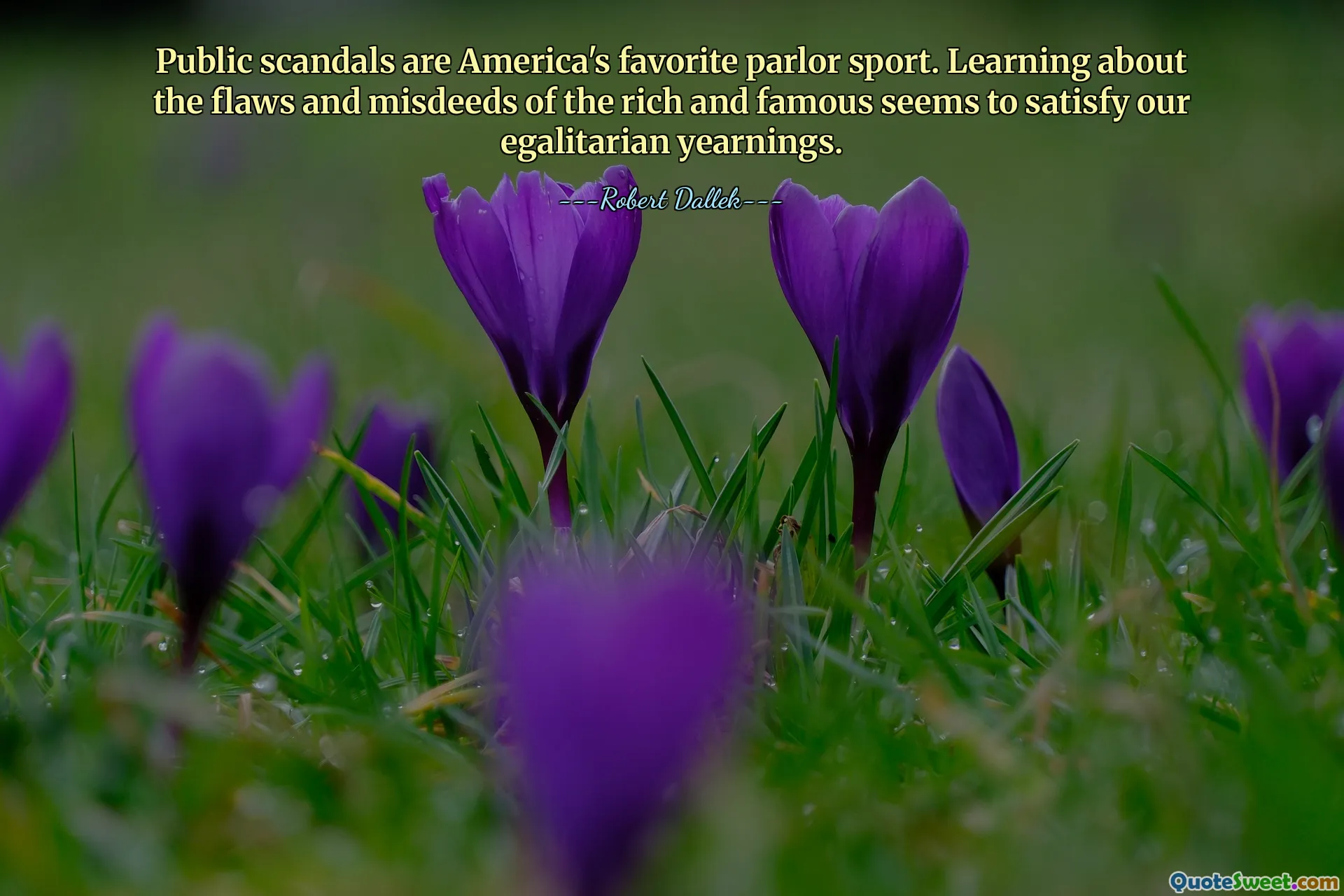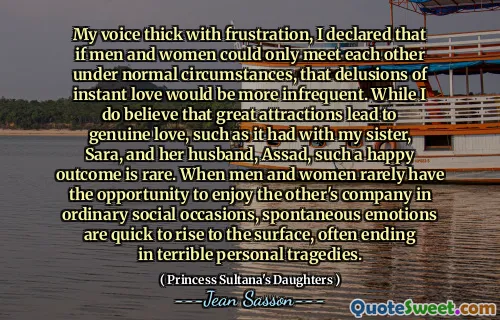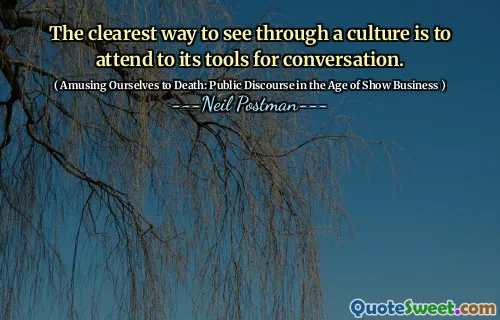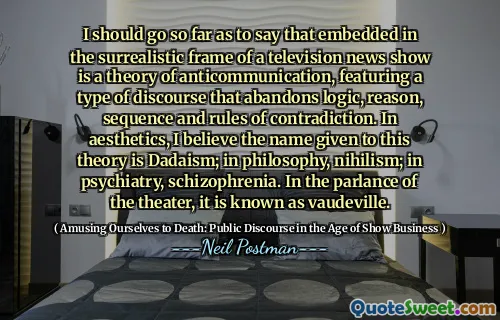
Public scandals are America's favorite parlor sport. Learning about the flaws and misdeeds of the rich and famous seems to satisfy our egalitarian yearnings.
The quote highlights a fascinating aspect of American culture: the collective fascination with the missteps and wrongdoings of those in the public eye, particularly among the wealthy and famous. This obsession can be seen as a societal need to find common ground and equality through the exposure of perceived flaws in the elite, thereby leveling the social playing field. People often derive a sense of justice or satisfaction when scandals reveal that even those who appear to live privileged and glamorous lives are fallible, flawed, and human. Such revelations might serve to diminish the perceived gap between the average person and the powerful, fostering a feeling of shared humanity.
Furthermore, this phenomenon can be understood as a form of social entertainment or 'parlor sport,' where gossip and scandal are readily consumed and discussed. It satisfies curiosity, a desire for gossip, and perhaps a subconscious need for transparency in societal power structures. This obsession raises questions about the nature of fame, morality, and societal values. It prompts us to consider whether our collective interest in scandals is ultimately voyeuristic or if it serves a larger societal purpose of accountability.
However, the emphasis on scandal also has darker implications. It can lead to the trivialization of serious issues and a culture increasingly obsessed with sensationalism. It distracts from substantive discourse on social and political issues and reduces complex individuals to mere subjects of gossip.
Ultimately, the quote prompts reflection on how societal fascination with scandals shapes our perceptions of morality, fairness, and the human condition. It reveals, perhaps, a longing for equality and humility in a society intensely focused on status and success.










